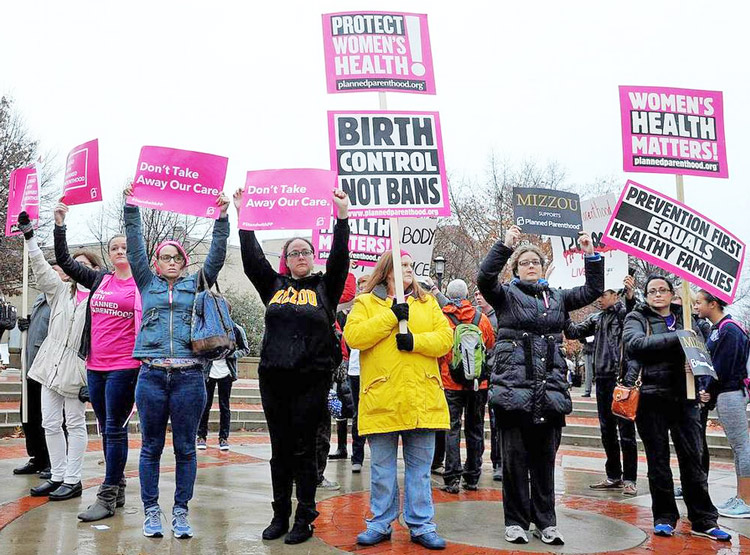After years of bitter fighting in Missouri courts over the right of Planned Parenthood clinics there to provide abortions, a Feb. 22 federal district court upheld a state law making it illegal for doctors to perform abortions unless they have admitting privileges at a hospital nearby. This decision flies in the face of a 2016 Supreme Court ruling that overturned similar restrictions in Texas.
The Planned Parenthood clinic in Columbia, Missouri, had filed a motion in December asking for an exemption from the law. This was overturned by the federal court. District Judge Brian Wimes wrote that admitting privileges do not affect enough women to constitute a “substantial obstacle,” reported the Columbia Daily Tribune.
In the 2016 Supreme Court ruling Justice Stephen Breyer wrote that admitting privileges provide “few, if any, health benefits for women” while posing “a substantial obstacle to women seeking abortions, and constitutes an ‘undue burden’ on their constitutional right to do so.”
In a news release, Mary Kogut, president of Reproductive Health Services of Planned Parenthood of the St. Louis region, said, “We will continue our fight to expand access to care for anyone who needs it.”
With this decision, only one clinic in Missouri meets the requirements to provide abortions — the Planned Parenthood clinic in St. Louis. Planned Parenthood Great Plains is appealing the ruling, Kate Maxcy, from the organization’s department of communications, told the Militant.
The ruling means a woman seeking to exercise her right to choose to have an abortion who lives in Springfield or other parts of the state face up to a 400-mile round trip to the clinic in St. Louis. Due to the 72-hour mandatory waiting period required by the state between her first appointment and the medical procedure, she either has to bear the extra expense of housing or make the trip twice. Wimes ruled that “requiring women to drive farther to obtain an abortion was not enough of a burden to rule in Planned Parenthood’s favor.”
Two other Planned Parenthood clinics had been providing abortions in Missouri until recently, in Columbia and Kansas City. The Kansas City clinic stopped performing abortions in 2018 when its license expired. In 2015, the University of Missouri Health Care hospital, facing political pressure, denied admitting privileges for doctors from the clinic in Columbia, and it had to stop providing the procedure.
Maxcy told the Militant the Columbia clinic was damaged on Feb. 10 by arson. Authorities said that a “Molotov cocktail-type device” was thrown through the clinic’s glass door. The clinic reopened Feb. 19.
Legislators push new restrictions
The Missouri state House of Representatives passed a new bill Feb. 27 “that would be the most restrictive abortion law in the country,” the Washington Times said.
The bill includes a provision barring abortions if a “fetal heartbeat” can be detected — making most abortions illegal six weeks into a woman’s pregnancy. It also bans abortion if fetal brainwaves are detected — which is usually possible around eight weeks.
There is also a “trigger clause” in the bill that would automatically ban abortions except in medical emergencies if the Supreme Court should overturn its 1973 Roe v. Wade ruling.
A May 2018 Gallup poll showed the majority of women and of working people in general support women’s right to choose to have an abortion, a right decisive to women’s ability to make their own reproductive decisions.
Legislative-imposed restrictions, and the court battles they produce, are all tied to the argumentation the justices chose to use in Roe v. Wade.
“Roe v. Wade was based not on a woman’s right ‘to equal protection of the laws’ guaranteed by the Fourteenth Amendment to the Constitution, but on medical criteria instead,” Jack Barnes, national secretary of the Socialist Workers Party, wrote in The Clintons’ Anti-Working-Class Record: Why Washington Fears Working People. “During the first three months (‘trimester’), the court ruled, the decision to terminate a pregnancy ‘must be left to the medical judgment of a pregnant woman’s attending physician (not to the woman herself, but to a doctor!).
“At the same time, the court allowed state governments to ban most abortions after ‘viability,’” Barnes said, “something that medical advances inevitably make earlier and earlier in pregnancy.”


